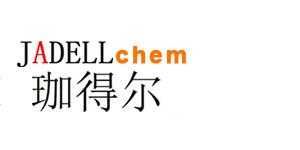Recombinant Human Hemofiltrate CC Chemokine-4/CCL16 能够特异性的吸引淋巴细胞、树突状细胞核单核细胞,增加它们的粘附性并具有骨髓抑制活性。
Synonyms
rHuHCC-4/CCL16; C-C motif chemokine 16; SCYA16 ; 重组人 CC 趋化因子16
Species
HumanSource
E. coli Accession
O15467 Gene ID
6360 Molecular Weight
Approximately 11.2 kDa AA Sequence
QPKVPEWVNT PSTCCLKYYE KVLPRRLVVG YRKALNCHLP AIIFVTKRNR EVCTNPNDDW VQEYIKDPNL PLLPTRNLST VKIITAKNGQ PQLLNSQ Biological Activity
Full biological activity determined by a chemotaxis bioassay using human monocytes is in a concentration range of 10-100 ng/ml. Appearance
Lyophilized powder. Formulation
Lyophilized after extensive dialysis against 20 mM PB, pH 7.4, 150 mM NaCl. Endotoxin Level
<1 EU/μg, determined by LAL method. Reconstitution
Reconstitute the lyophilized recombinant Human Hemofiltrate CC Chemokine-4/CCL16 (rHuHCC-4/CCL16) to 0.1-1.0 mg/mL using sterile distilled water or aqueous buffer containing 0.1% BSA. Storage & Stability
Lyophilized recombinant Human Hemofiltrate CC Chemokine-4/CCL16 (rHuHCC-4/CCL16) is stored at -20°C. After reconstitution, it is stable at 4°C for 1 week or -20°C for longer. It is recommended to freeze aliquots at -20°C or -80°C for extended storage. Shipping
Room temperature in continental US; may vary elsewhere. Background
CCL16, also known as liver-expressed chemokine or NCC-4 or lymphocyte and monocyte chemoattractant or HCC-4, is a CC chemokine that specifically attracts lymphocytes, dendritic cells, and monocytes; increases their adhesive properties; and has myelosuppressive activity. CCR1, CCR2, CCR5, and CCR8 are the functional receptors of CCL16[1]. |



